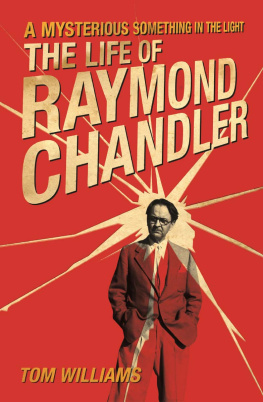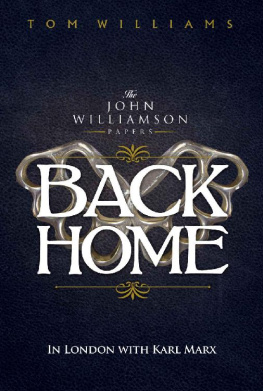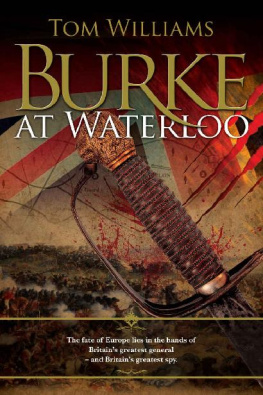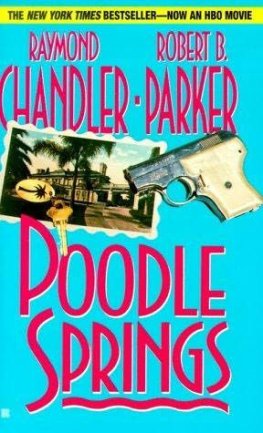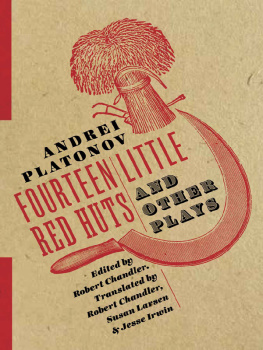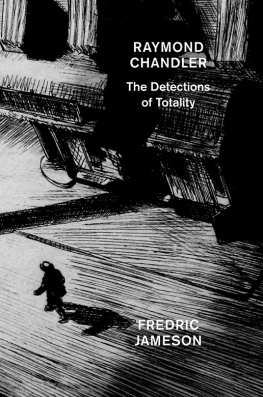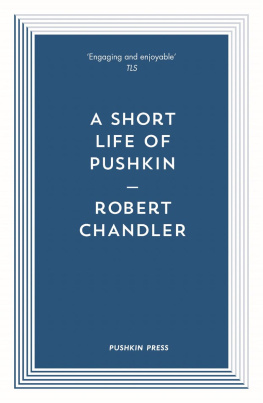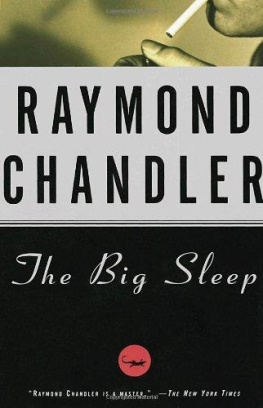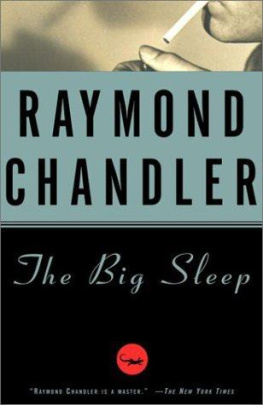The Novels of Raymond Chandler:
A Short Guide
Tom Williams

Introduction
I n May 1938 Raymond Chandler and his wife Cissy left the city of Los Angeles behind them and drove their Packard to Big Bear Lake in the San Bernardino Mountains, where they had rented a small cabin. They made the move for many reasonsRay was ill with a cold; LA was too busy and too hotbut, above all, Ray wanted to take some time away from the city to focus on his writing. Somewhere, in the back of the Packard, buried amidst the odds and ends of the Chandlers marriage, nestled a manuscript; a first draft of a first novel, which, at Big Bear Lake, Ray would refine and rewrite until it was ready to share it with publishers. The book would eventually be published as The Big Sleep and it would not only change Raymond Chandlers life but also the way that crime fiction was read and written for years to come.
This short book will look at how Raymond Chandler came to write The Big Sleep and the six novels that followed it in some detail. Weaving together strands of his life with his work, it will tell the story of his development as a writer. Specifically, it will look at how these seven books came to be written and how Chandlers aesthetic vision changed over his career. Crime writers have sometimes been treated less critically than more consciously literary novelists but this is a disservice. Many writers, before and after Raymond Chandler, brought a literary sensibility to crime writing but Chandler still somehow sits apart from the pack. This is not with the result of any specific achievement. He did not win a major literary prize for example. Rather, the quality of his writing, the sheer power and beauty of it, won him the respect of writers and critics on both sides of the Atlantic. He could claim to be one of the finest writers in the English language of his generation. At the same time, he wrote within the very strict confines of genre, specifically hardboiled crime, and, as readers, it is impossible for us to forget this.
Nor should we. Ray worked hard to write crime novels and while he harboured grand ambitions to write something more culturally elevated, he struggled to slough off the genre completely. Though this vexed him greatly, it was in the space between his ambition and his ability that Raymond Chandler found the inspiration to write so brilliantly. This is not a book that will make claims for Chandler as a great literary writer, nor will it condemn him for only being a crime novelist. Rather it will explore, examine and, above all, celebrate, what Raymond Chandler was: a fine writer, with a unique talent for language, who produced some of the best books of the 20th century.
Readers of my biography of Chandler, A Mysterious Something In The Light will not find anything new in this text. It is intended for those in search of a brief history of Philip Marlowe and his creator. I hope, however, that new readers will choose to explore Chandlers fascinating life in more detail by reading my previous book. There they will find a detailed examination of the man, his life and his achievement, set in the context of the world in which he lived and suffered.
The Novels of Raymond Chandler
R aymond Chandler was born in Chicago in 1888. His mother, Florence, had arrived in America from Ireland two years earlier when she had fled her family home and settled with her sister in Laramie, Wyoming. It was there that she came across a handsome yet gruff railway engineer by the name of Maurice Chandler. They started courting and, shortly after, married at St Matthews Episcopal Church. They had known each other for less than a year. Shortly after their wedding, the young couple moved to Chicago. The move was most likely caused by the itinerant nature of Maurices work: he laboured on many of the railway lines that spread out across the mid-west.
In part as a consequence of the increasing importance of rail transport, Chicago had become a modern entrept and, as such, was a sensible base for the family of a railway engineer. But it had its downside too. It was a city that was notorious for its bad behaviour; in particular it was a haven for drinkers and, by the time Raymond Chandler was born the city was home to one bar for every two hundred residents. For a man like Maurice Chandler, it was a dangerous place to call home.
Raymond was born on the 23 July 1888 and entered a world of turmoil and change. His parents marriage, which was built on the shakiest foundations from the start, would soon collapse. Maurice spent much of his time away from home, working the rails, and, when he returned to Chicago, he preferred a bar to the family home. Ray would later claim that his father was violent towards his mother. It isnt clear how much of this abuse Chandler was witness to (he retold the story in different ways and at different times) but in light of Philip Marlowes dedication to protecting women, it seems likely that he was aware of it from a young age and that it fused in him a desire to defend the weak that would last throughout his life.
Maurices violence was certainly a factor in Ray and Florences flight from Chicago. For a period, they moved between Plattsmouth, Nebraska (where Florences sister had moved) and Chicago (perhaps in the hope of some reconciliation) but eventually Florence gave up. By now it was 1900 and she made the hard decision to return to the home she had fled fourteen years earlier. Accompanied by Ray she made the long journey back to Waterford in Ireland, where her mother and brother still lived. It was not a happy family she returned to. The Thorntons were strict Anglo-Irish Protestants and Florences mother in particular thought that this meant they were a cut above the Catholic majority. They were a wealthy family but they were backward looking, entrenched in a class-bound culture that was being eroded around them.
Florence and Ray did not stay in Ireland for long. It was decided that Ray would be sent to London where he would attend Dulwich College, a prestigious public school in the South East of the capital. Together with his mother, uncle and a further sister, Ethel, Ray moved to London and set up home. He entered the College on 18 September 1900 as pupil number 5724. It was a fateful choice for Ray. At Dulwich, Ray studied a wide curriculum but he proved particularly adept at mathematics and the Classics. Studying Latin and Greek texts would prove to be a surprisingly effective preparation for his later career in crime writing, teaching him the basic building blocks of language (and thereby helping him acquire a new one) and providing him with an important counterpoint to pretension. Though his career at the College was unsteadyhe was occasionally ill there and took time out of lessonshe left in 1904 with a solid education. Despite this (and his obvious intelligence), his uncle Ernest refused to pay for Ray to attend university and, instead, sent him to Europe for a year to learn languages; first in Paris and, later, in Germany. It was during his time in Paris that Ray first considered being a writer. Here he studied languages with a particular zeal (he slept, for example, under a chart of 214 ideographs of the Chinese Mandarin language and studied obscurer tongues like Armenian and Hungarian). Despite this linguistic talent, his return from Europe saw his family push him into an application to the civil service. It offered a secure and steady income, though the work would likely be dull. Before he took the exam, Ray had to be naturalised as a British citizen, but once his American heritage had been fixed, he passed the examination with flying colours and was offered a position in the Admiralty as an Assistant Store Officerin which role he lasted six months before quitting to become a poet.


